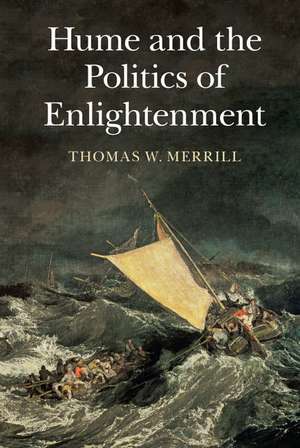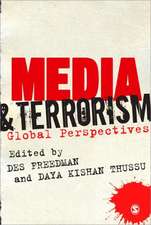Hume and the Politics of Enlightenment
Autor Thomas W. Merrillen Limba Engleză Hardback – 22 iul 2015
| Toate formatele și edițiile | Preț | Express |
|---|---|---|
| Paperback (1) | 282.10 lei 43-57 zile | |
| Cambridge University Press – 28 mar 2018 | 282.10 lei 43-57 zile | |
| Hardback (1) | 712.49 lei 43-57 zile | |
| Cambridge University Press – 22 iul 2015 | 712.49 lei 43-57 zile |
Preț: 712.49 lei
Preț vechi: 828.47 lei
-14% Nou
Puncte Express: 1069
Preț estimativ în valută:
136.38€ • 148.19$ • 114.63£
136.38€ • 148.19$ • 114.63£
Carte tipărită la comandă
Livrare economică 21 aprilie-05 mai
Preluare comenzi: 021 569.72.76
Specificații
ISBN-13: 9781107108707
ISBN-10: 1107108705
Pagini: 212
Ilustrații: black & white illustrations
Dimensiuni: 152 x 229 x 16 mm
Greutate: 0.48 kg
Editura: Cambridge University Press
Colecția Cambridge University Press
Locul publicării:New York, United States
ISBN-10: 1107108705
Pagini: 212
Ilustrații: black & white illustrations
Dimensiuni: 152 x 229 x 16 mm
Greutate: 0.48 kg
Editura: Cambridge University Press
Colecția Cambridge University Press
Locul publicării:New York, United States
Cuprins
Introduction; 1. Hume's Socratism; 2. Calling philosophy down from the heavens; 3. Turning to the human things; 4. Investigating morality and politics; 5. Hume's cultural revolution: the Essays, part 1; 6. The education of the honest gentlemen: the Essays, part 2; Epilogue.
Recenzii
'A political view of Hume's philosophy and a philosophical view of his politics, nicely combined. Thomas W. Merrill's fine interpretation centers on Hume's revealing early works and finds in them more Socrates than Newton, a scientific skepticism that doubts science, and a prudent deference to political opinion.' Harvey C. Mansfield, Professor of Government, Harvard University, Massachusetts and Senior Fellow, Hoover Institution
'Merrill has written a book that should have been written long ago. For all the studies of Hume's thought, no one has so intelligently and persuasively shown how Hume's radical philosophic questioning is connected to his moral and political thought. Merrill not only offers a provocative new reading of the Treatise but also shows how Hume's ambition to develop a new science of human nature on the bedrock of skepticism leads to a reformist political project in the often neglected Essays. Indeed, whereas most scholars ignore Hume's Essays or discuss them piecemeal, one of the main contributions of Merrill's book is to show the unity of the Essays and to trace how Hume's political project develops over the course of the work as a whole. I learned something new on almost every page of this important study.' John T. Scott, University of California, Davis
'In this provocative and persuasive study, Thomas W. Merrill treats the career and the thinking of David Hume as no one has before, drawing out in full the implications of a remark, made in the Treatise of Human Nature, in which the Scot compares his project as a philosopher with that of Socrates as represented by Cicero in the Tusculan Disputations; and showing in fine detail that what appears to be a passing remark is, in fact, the key to Hume's entire enterprise. To be more precise, he demonstrates that Hume's turn from metaphysical materialism to a treatment of the science of human nature as first philosophy recapitulates Socrates' rejection of the approach of Anaxagoras and his 'second sailing' as described in the Phaedo.' Paul Rahe, Hillsdale College, Michigan
'This book portrays a Hume of precipices and paradoxes: a fearless skeptic devoted to the theory and practice of political moderation and the broker of an innovative, unlikely alliance between modern philosophers and a prudent middle class, in support of commerce and the rule of law. While it will not convince everyone and will start a debate rather than ending it, this highly original, forcefully written, ingenious, and insightful book ranks immediately among the indispensable works on Hume's political thought. It establishes Merrill not only as one of the brightest Hume scholars of his generation but as a striking new voice in political theory.' Andrew Sabl, Yale University, Connecticut
'Merrill has written a book that should have been written long ago. For all the studies of Hume's thought, no one has so intelligently and persuasively shown how Hume's radical philosophic questioning is connected to his moral and political thought. Merrill not only offers a provocative new reading of the Treatise but also shows how Hume's ambition to develop a new science of human nature on the bedrock of skepticism leads to a reformist political project in the often neglected Essays. Indeed, whereas most scholars ignore Hume's Essays or discuss them piecemeal, one of the main contributions of Merrill's book is to show the unity of the Essays and to trace how Hume's political project develops over the course of the work as a whole. I learned something new on almost every page of this important study.' John T. Scott, University of California, Davis
'In this provocative and persuasive study, Thomas W. Merrill treats the career and the thinking of David Hume as no one has before, drawing out in full the implications of a remark, made in the Treatise of Human Nature, in which the Scot compares his project as a philosopher with that of Socrates as represented by Cicero in the Tusculan Disputations; and showing in fine detail that what appears to be a passing remark is, in fact, the key to Hume's entire enterprise. To be more precise, he demonstrates that Hume's turn from metaphysical materialism to a treatment of the science of human nature as first philosophy recapitulates Socrates' rejection of the approach of Anaxagoras and his 'second sailing' as described in the Phaedo.' Paul Rahe, Hillsdale College, Michigan
'This book portrays a Hume of precipices and paradoxes: a fearless skeptic devoted to the theory and practice of political moderation and the broker of an innovative, unlikely alliance between modern philosophers and a prudent middle class, in support of commerce and the rule of law. While it will not convince everyone and will start a debate rather than ending it, this highly original, forcefully written, ingenious, and insightful book ranks immediately among the indispensable works on Hume's political thought. It establishes Merrill not only as one of the brightest Hume scholars of his generation but as a striking new voice in political theory.' Andrew Sabl, Yale University, Connecticut
Notă biografică
Descriere
This work explores Hume's Socratic turn to moral and political philosophy as a response to the crisis of radical questioning.















